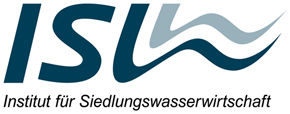
![[Translate to English:] [Translate to English:]](/fileadmin/_processed_/1/4/csm_Schriftenreihe_2018_7_b_2447b401af.jpg)
Robert Mieske
Sewage Sludge Treatment Concepts for Industrial Zones Using Vietnam as an Example
Abstract
The worldwide demand for wastewater treatment presents a major challenge for engineers, because commonly used technologies must be adapted to varying local conditions. Sludge produced during wastewater treatment is primarily the organic by-product of mechanical and biological treatment steps. It consists of the solids removed during the treatment processes. A globally increasing degree of wastewater treatment produces increasing quantities of sewage sludge which have to be treated appropriately to avoid negative impacts on the environment. Normally sewage sludge is treated anaerobically (digestion) under mesophilic conditions between 35 °C to 40 °C at large wastewater treatment plants (WWTP). This standard process aims at stabilizing the organic matter and decreasing the sludge volume that needs to be disposed of. In Germany, numerous rules and standards exist for the design and dimensioning of anaerobic sludge stabilization systems taking into account local conditions. In general single-stage treatment processes are designed to improve cost and energy efficiency of the plants. Recent research on the one hand, has focused on increasing gas yield in digesters in order to optimize energy production. On the other hand, research projects have worked on options for stabilizing sludge without external energy input (e.g. soil gas, fuel oil) during cold seasons. In warm countries it is possible to save investment costs for digester isolation, because the energy demand for heating the system is low.
This thesis focuses on the question how digestion temperatures between 35 °C and 25 °C change the required sludge age, if the goal is a fully stabilized sludge for further utilization (e. g. in agriculture) and no addition of external energy besides the biogas produced in the digestion process. Therefore, test trials were carried out in five pilot-scale reactors with 50 litres sludge volume which were fed with raw sludge (primary and excess sludge) at different sludge ages and varying temperatures. The pilot-plant (including automatic feeding system, gas measurement system etc.) was set up in an ISO-freight container at two WWTP's in Turkey (Kayseri and Konya).
The gathered data were completed by mass balances of the parameters COD, phosphorous and nitrogen, which were established to verify that the test system was a closed system. The results of each single reactor were analyzed separately for efficiency of volatile solids reduction ηVS (degree of degradation of organic matter) and specific biogas yield (rel. to added organic matter).
On the basis of these research results, key figures given in literature for anaerobic stabilization at temperatures between 34 °C and 20 °C could be validated. Results from the separate reactors were combined to a degradation curve and the calculated degradation function was used to determine recommendations for required sludge ages in various temperature ranges.
Data from the degradation function were also used to develop recommendations for the dimensioning and design of the digesters. Furthermore, recommendations were given regarding energy management in cold and warm climates (e.g. heated digesters without isolation or seasonal heat temperature management).
Vacancies of TU Braunschweig
Career Service' Job Exchange
Merchandising
Term Dates
Courses
Degree Programmes
Information for Freshman
TUCard
Technische Universität Braunschweig
Universitätsplatz 2
38106 Braunschweig
P. O. Box: 38092 Braunschweig
GERMANY
Phone: +49 (0) 531 391-0
